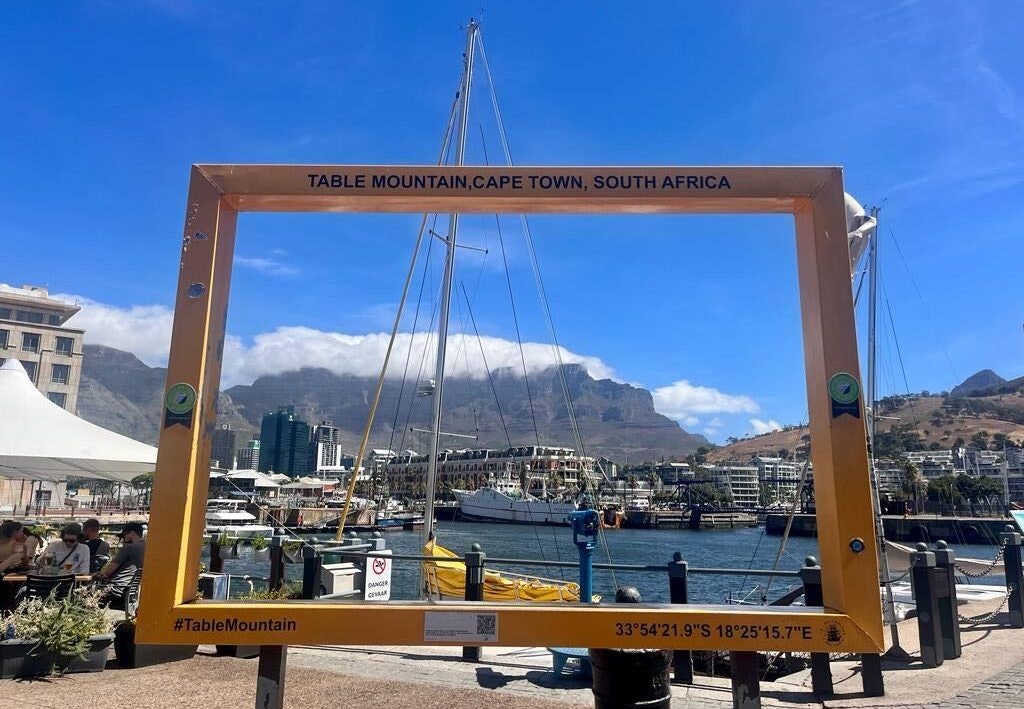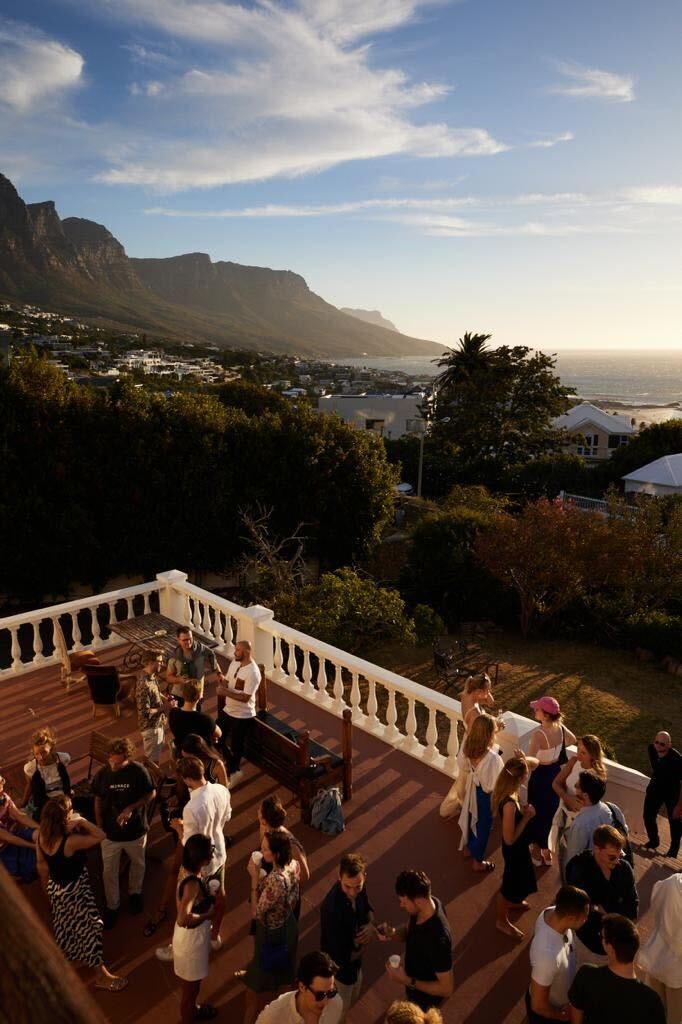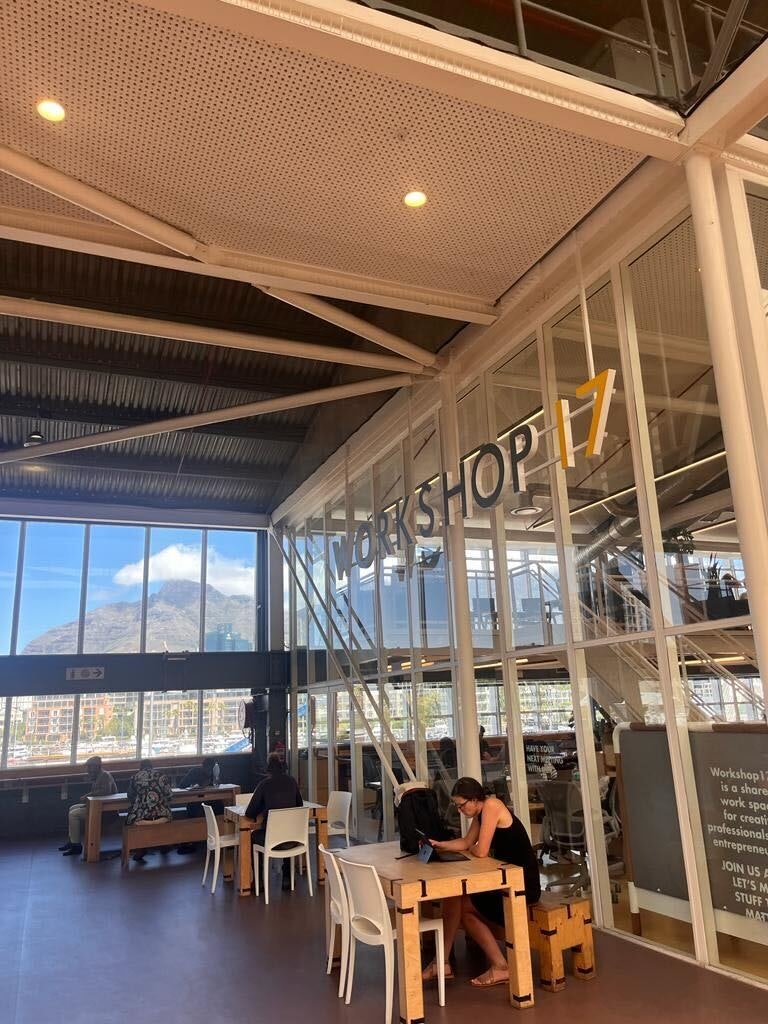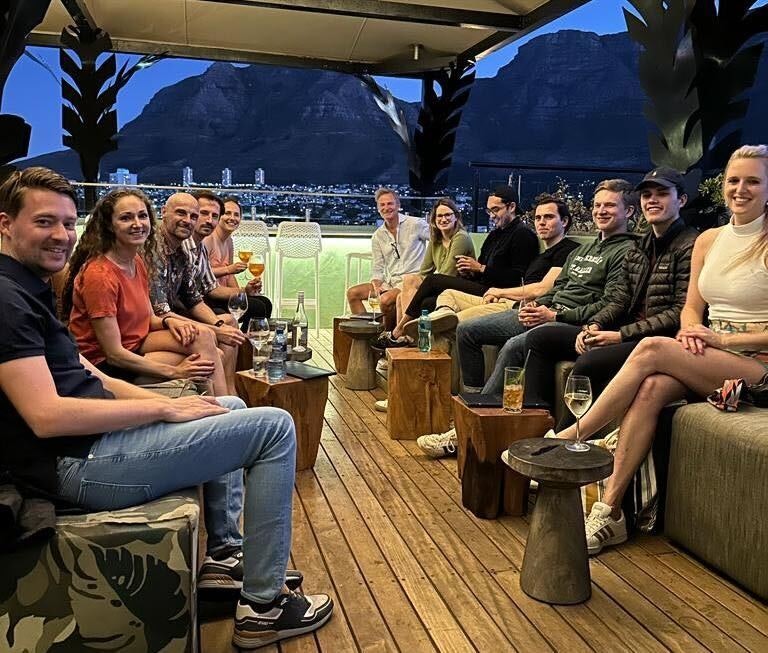On any given week wandering along Torstraße, a long street in Berlin’s Mitte neighbourhood, you’re bound to run into a VC or founder — or three.
In January, however, the streets are conspicuously quiet.
That’s because many startup Berliners fly south for the winter to Cape Town. It’s evolved into something of an annual outpost. German VCs, founders and creators are now to be found there every winter: kitesurfing, sunbathing, networking and working on their startup ideas.
Founders host parties and dinners in their rented-out villas. VCs go on hiking trips. And last week, DJ Dirty Doering, who frequently plays famous Berlin clubs like KitKat and Ritter Butzke, played at the Yalla Valhalla festival in Cape Town — a slice of home for those longing for some techno.
But just why are Berliners decamping to Cape Town en masse?
The FOMO effect
It’s a bit of a mystery who first started Berlin’s annual migration to Cape Town. But most people who spoke with Sifted agree that the pandemic and the transition to remote work helped turn it into a phenomenon.
Marc Mogalle, an angel investor who also works as a fractional CFO, says he’s been coming to the city for the past 20 years as a windsurfer. He recalls attending a party two years ago at the Castle of Good Hope — known as the oldest surviving building in South Africa — and says he found it odd to hear half of the party’s attendees speaking German.

Cape Town has beautiful beaches and nature, good infrastructure (plenty of Airbnb villas, coworking spaces and decent internet connection) — and the timezone, one hour ahead of Berlin, is convenient for those who work with German or European companies. Visitors can stay anywhere from a couple of weeks to a couple of months.
Many people who spoke to Sifted didn’t have a specific purpose for going to Cape Town; some heard about it from friends or saw posts on Instagram and decided to join spontaneously, afraid of missing out.
I think there is definitely this FOMO element — everyone is there
“I think there is definitely this FOMO element — everyone is there. Like, all of your LinkedIn and Instagram,” Katia Yakovleva, an ex-Spotify employee-turned-founder, tells Sifted. “It's kind of the same Mitte gang relocating to Cape Town.”
Some who decided to stay in colder climes are slightly critical of what they describe as the Cape Town crowd’s “herd mentality”, latching onto a trend because others are doing it.

Some investors have publicly poked fun at the idea. HV Capital partner Jan Miczaika posted a picture on LinkedIn of VCs wearing identical Patagonia vests and beige shorts aboard a boat in some sunny locale. He wrote that he’d decided to ski alone in Austria at the start of the year, rather than join the rest of the VC ecosystem (some of them his colleagues) in Cape Town.
Work hard, play hard
But perhaps the folks left in Berlin are just jealous.
There are a lot of parties, events and networking opportunities being hosted by Berliners in Cape Town this month, along with multiple WhatsApp groups and even a Cape Town guide that’s been sent around, containing tips for restaurants, vineyards and transportation services, as well as assessments of the level of crime and poverty in the city.
Cephas Ndubueze, founder of the FOMO newsletter which lists tech and cultural events in Berlin, has organised a party with his team at their villa this Saturday, January 20. The party will be “colourful Sisyphos vibes”, he says, referring to the vibrant dress code of attendees at Berlin’s indoor/outdoor Sisyphos club, with a pool, techno and afrobeats, and Aperol spritzes on offer.
The FOMO team has also organised several coworking events, complete with coffee and cake, called “Unofficial Coffee”.

“If you don't know the right people doing events, it’s difficult to get invited, it’s difficult to get access. We want to make it easier and make it more public,” says Ndubueze, who also created a WhatsApp group called “FOMO Cape Town 2024”, to encourage people to share Cape Town tips and events. He and his team will be in Cape Town until the end of the month.
Another familiar Berlin face, Fabian Tausch, who hosts a podcast called Unicorn Bakery, has been planning for months to bring people together in Cape Town.
Tausch and his friend Bastian Krautwald, founder of invite-only social banking app OWWN, booked two villas — one in Camps Bay right on the beach and the other in Constantia, an affluent suburb known for its wineries — for up to 40 entrepreneurs and creators for five weeks.
Everyone is quite relaxed. Even people that don’t usually have time for coffee in Berlin are like ‘why don’t we meet for coffee?’
Each house meets up regularly for dinners, as well as wine tasting and sport sessions in between their working hours.
“It’s cool because everyone is quite relaxed… Even people that don’t usually have time for coffee in Berlin are like ‘why don’t we meet for coffee?’” Tausch tells Sifted as he walks along the promenade in Camps Bay in 28°C weather.
“I would say people here are a bit less transactional (than they usually are in Berlin). They’re more like, let’s take the hour, make the best out of the hour and then go back to work.”

While some founders use the time away from Berlin to relax, get some distance from their companies and stay relatively incognito, others see it as an opportunity to connect with more people in the tech circles and work on their startups.
“Everyone is going there — the majority of people on their own budget — for the value of this informal networking in your spare time,” says Yakovleva, who’s working on finding product-market fit for her fledgling startup.
Bursting the bubble
The yearly decamping of Berlin techies to Cape Town isn’t necessarily especially helpful for the local startup scene though, say some; Berliners tend to stick together and don’t interact much with local founders.
“What I was seeing over the years is [that] there's little bubbles: the Brits are with the Brits, the Dutchies are with the Dutchies; the Swedes are with the Swedes…the Berlin people are in the Berlin bubble,” says Michel Weiss, who splits half the year between Cape Town and Europe and is the founder and CEO of Counder Network, which helps African ventures and startups with things like fundraising.
Weiss is among those who are trying to change that. He’s helped organise a summit in Berlin to highlight African startups and says he’s connected funds like Launch Africa Ventures with German family offices. A few months ago, he also helped launch Cape Connect, a networking initiative to bring together local entrepreneurs and founders with out-of-towners for events, including yacht parties and volleyball matches.
Weiss says the platform has about 100 people signed up, mostly VCs and entrepreneurs. “Our purpose, ultimately, is to get more people excited about tangible business, startup and venture investment opportunities in the [Cape Town] ecosystem,” he tells Sifted, to bring “local investors and founders together with their counterparts.”
The hype has reached Cape Town today, but VCs are always looking for the next under-the-radar thing. The question is: where will the bubble move to next?


